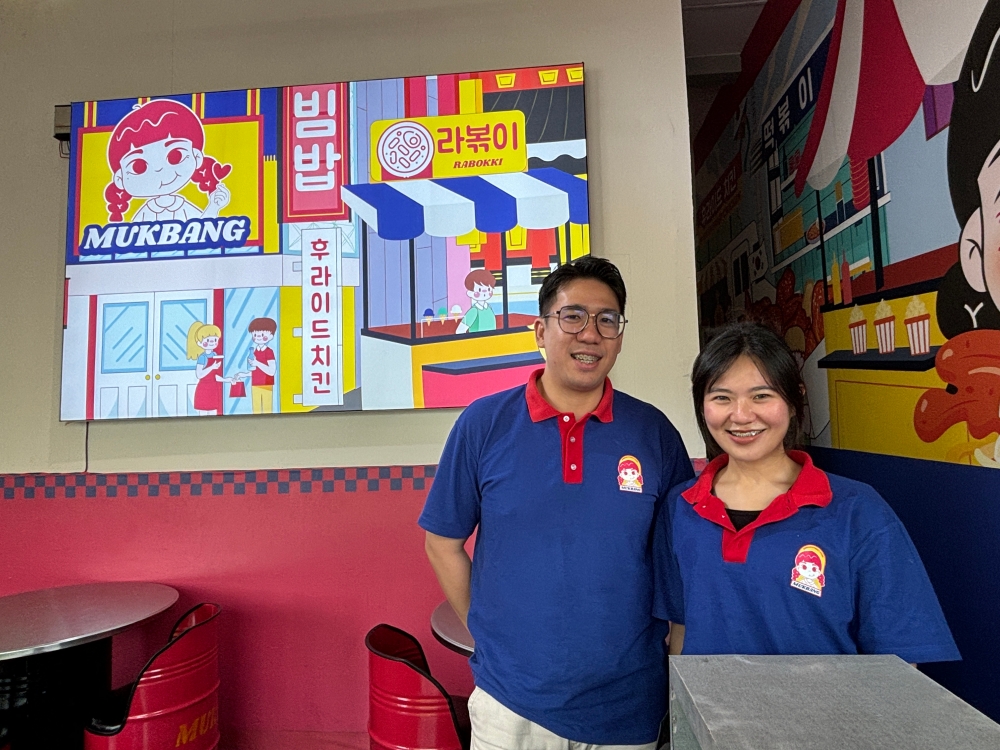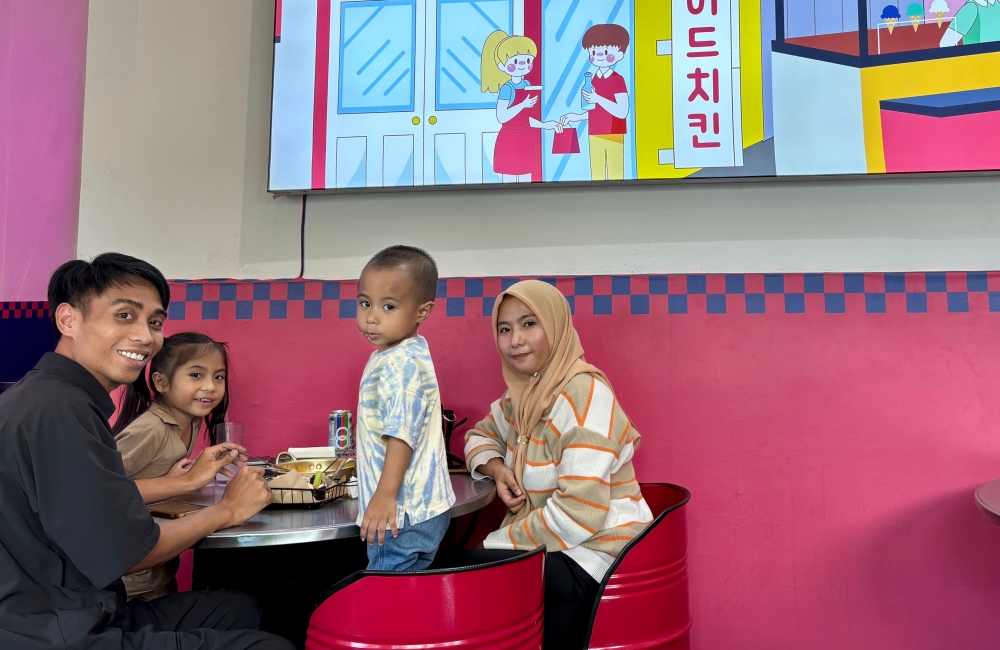KOTA KINABALU, Sept 11 — Sabahans seem to be riding on an unstoppable hallyu or Korean wave of K drama, K-pop, cuisine and culture as Korean food outlets have popped up across the city.
At last count, there are over 30 Korean eateries and restaurants in the state capital and its outskirts, with every major commercial area providing at least one Korean option.
In the last decades, there were perhaps a handful of Korean restaurants, run by Korean families featuring comfort food such as bulgogi, kimchi jjigae and samgyeopsal in surroundings mimicking familiar comforts of home in Korea.
Bintulu, the Korean Club and Hi Seoul are the OG of Korean restaurants in the state capital, serving up a variety of classic Korean dishes in a cosy environment in family-run establishments for years to satisfied customers.
But as the global popularity of Korea and Korean food grew, Sabah too embraced it and soon kimbap, Korean fried chicken and tteokbokki was on everybody’s lips.
Specialty eateries that focus on street food including Korean fried chicken, kimbap and spicy noodles have mushroomed to popularity across malls, food courts and even supermarket kiosks, taking over chap fan or economy noodles stalls.
Fried chicken and tteokbokki are especially popular but even shops that solely offer banchan can do well.

Korean flavours, local tastes
One of the biggest success stories is Mukbang, a local outfit specialising in Korean fried chicken, that started out during the lockdown as a homegrown “delivery only” outlet offering family platters of fried chicken, kimbap and tteokbokki.
Despite them starting off as unknowns, the demand for their fried chicken came hot and fast – within 10 minutes of opening on food delivery apps, they received eight orders and they kept coming in, and did not stop.
Fast forward nearly four years later to now, they have two fast food style outlets and a food court kiosk. But still, most of their orders come through food delivery apps – up to 200 orders a day.
One half of the Mukbang operation, Mijii Yong said that they had to learn fast how to cope and learn how to run a business and how to develop more items for their menu like kimchi fried rice, japchae and ramyeon.
She had learned the recipes on her own and from the internet but took feedback from their customers, gradually leaning into local tastes.
“However, Koreans who try our food also seem to like it,” said her partner, Ricky Yong.
Korean fried chicken may be the most popular, but for others though, it’s the Korean barbeque experience or Korean BBQ that is the quintessential Korean experience.
The popularity of Korean BBQ cannot be denied as buffet restaurants like Secret Garden and K-Grill are packed with crowds most nights and especially weekends.
Both of them said that they have seen ups and downs over the years but now enjoy a steady stream of regular customers.
“Of course, Covid lockdown was tough on us, and we were worried, but we pushed through and now we are stable,” said a staff member of Secret Garden.
They were the first to run an all-you-can-eat Korean BBQ in Kota Kinabalu, and has been going strong for a decade, in fact getting increasingly crowded for dinner and weekends.
“We get a lot of locals here celebrating their birthdays or get togethers too. We have always had our regulars, but probably more people are into Korean food now,” said the staff.

Have halal, will eat
It is not just the buffet that is enticing as even normal Korean BBQ restaurant do brisk business on weeknights.
“It’s not always busy as some nights it can be quiet. But still, our most popular item is pork belly BBQ, and then they will order japchae or kimchi soup to accompany the rice and meat,” said the owner of another popular Korean BBQ restaurant.
However the rise in popularity of Korean food can also be attributed to the demand for halal Korean cuisine.
“A large majority of our customers are Muslims. About 90 per cent of the customers we get in one of the outlets are Muslim and so are the ones on the food delivery apps. We are very pleased that they seem to love our food,” said Ricky.
Kimbap kiosks in 1Borneo Hypermall and fast food chains like BBQ Chicken and Dubuyo are also aimed at this emerging market although they also attract non Muslims.
The latter two franchises are certified halal while smaller outfits like Mukbang are “serve no pork”, but use halal ingredients and have their food prepared by Muslim employees.
“We love Korean food. We learned about it from TV and the internet and found it really delicious. It suits our tastes – spicy, sweet, sour, we really can’t get enough,” said Arief Basawan, a real estate agent who works in Sandakan.
“It's not easy to find halal Korean food all the time, so we are very happy to find places like this. My wife and children are always asking for it,” he said.





















